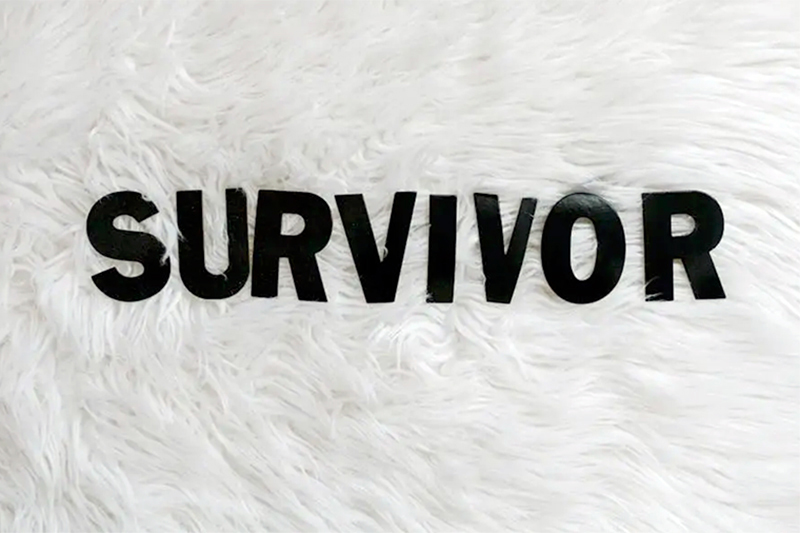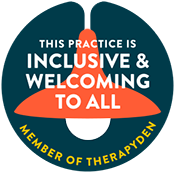Thriving Beyond Trauma: Breaking Free from a Covert Narcissist

By Brenda Stephens, Licensed Professional Clinical Counselor
In navigating relationships, the impact of a covert narcissist can leave deep emotional scars. Understanding the dynamics of such relationships is essential for recovery and ultimately thriving beyond the trauma. This blog aims to shed light on the characteristics of a covert narcissist, the effects of this relationship on one’s mental health, and provide practical steps toward healing and empowerment.
Understanding Covert Narcissism
Covert narcissists often go unnoticed due to their subtle manipulation techniques. This section explores the traits that distinguish covert narcissists from their overt counterparts, helping readers recognize signs in their relationships.
One key characteristic is their ability to present themselves as victims, which can confuse their partners. Unlike overt narcissists, who crave constant admiration openly, covert narcissists may elicit sympathy while simultaneously undermining your self-worth. This tactic not only makes it hard to see their true nature but also keeps you emotionally bound to them.
Furthermore, covert narcissists excel in gaslighting, making you question your reality. They can shift blame skillfully, leaving you feeling inadequate and uncertain. Recognizing these behaviors is crucial, as it empowers you to take the first step towards liberation.
The Emotional Toll of Relationships with Covert Narcissists
Living with a covert narcissist can lead to feelings of confusion, self-doubt, and emotional fatigue. Here, we’ll discuss the common emotional responses and trauma bonds that develop, highlighting the significance of understanding these feelings.
The emotional rollercoaster does not just wear you down; it distorts your sense of self. Often, you may find yourself feeling emotionally drained, wondering why small interactions leave you feeling so unsettled. The covert narcissist’s erratic behavior creates a toxic environment that cultivates anxiety and depression. Recognizing this as a form of emotional abuse is the first step towards your recovery.
As you navigate these feelings, it’s crucial to remember that trauma bonds are powerful. They create a cycle of dependency where love feels intertwined with pain. Understanding this phenomenon can be liberating, allowing you to break free from the chains that bind you to unhealthy emotional patterns.
Signs You’re in a Relationship with a Covert Narcissist
What are the red flags that indicate you might be entangled with a covert narcissist? This section provides a list of behaviors and tactics used by covert narcissists, empowering readers to assess their relationships critically.
Pay attention if you frequently feel manipulated or find yourself confused about your own emotions. A covert narcissist might frequently belittle your feelings or refuse to engage meaningfully, leaving you questioning whether you are overreacting. This kind of emotional invalidation is an unmistakable sign that something is amiss.
Additionally, look for patterns of inconsistency. Covert narcissists can oscillate between warm affection and cold detachment, creating a push-and-pull dynamic that leaves you feeling unstable. This erratic behavior is meant to keep you on your toes, ensuring you stay devoted to them while eroding your self-esteem.
The Path to Healing: First Steps
Healing begins with awareness and acceptance. Here, readers will learn about initial steps such as setting boundaries, seeking professional help, and surrounding themselves with supportive individuals.
Setting clear boundaries is essential when you begin to distance yourself from a covert narcissist. This might mean limiting interaction, not sharing personal feelings, or even cutting ties completely. It’s vital to protect your emotional space as you begin to reclaim your sense of self.
In addition, seeking professional help can be a game-changer. A therapist who specializes in emotional abuse and trauma can provide you with coping strategies and a safe space to explore your feelings. Building a solid foundation of emotional support will equip you for a journey filled with ups and downs.
Developing Resilience and Self-Esteem
Rebuilding self-esteem after a toxic relationship is crucial. This section offers strategies to cultivate resilience, such as practicing self-care, engaging in positive affirmations, and enjoying activities that promote personal growth.
One powerful tool in this journey is self-care. Dedicating time to activities that bring you joy can significantly improve your overall well-being. Perhaps you’ll find solace in yoga, reading, or even painting. Whatever it may be, investing in yourself paves the way for healing.
Moreover, positive affirmations can drastically shift your mindset. Repeating affirmations that counteract the negative narratives instilled by the covert narcissist can help you regain confidence. Statements like ‘I am worthy of love and respect’ can be transformative when repeated regularly.
Creating a Support System
Navigating the journey away from a covert narcissist benefits greatly from a strong support network. This segment focuses on how to find and foster relationships with friends, family, and professionals who can aid in emotional recovery.
Surrounding yourself with people who genuinely care about your well-being is essential. Seek out friends who listen and validate your experiences. It’s important to nurture these relationships, as they can provide the love and respect you may have been missing.
Engaging in support groups, whether online or in person, can also strengthen your recovery. Sharing experiences and listening to others can remind you that you are not alone in this struggle. Community is a powerful source of comfort, allowing you to heal together. Moving Forward:
Embracing Your True Self
The final stage of healing is embracing your true identity and purpose. This section discusses the importance of pursuing passions and setting life goals, encouraging readers to look towards a future full of possibilities.
As you step into this new chapter, remember that rediscovering your identity takes courage. Identify what truly matters to you. It could be a hobby you abandoned or a career path that excites you. This journey is about reconnecting with your interests and values after years of neglect.
Setting achievable goals can be an inspiring way to move forward. Whether it’s personal, professional, or creative pursuits, let your aspirations guide you toward a life filled with purpose. Remember, it’s not about perfection; it’s about progress and celebrating the small victories along the way.
Embracing Your Journey to Healing
Breaking free from a covert narcissist is a transformative journey towards reclaiming your life and mental well-being. Remember, healing takes time and patience, but with the right tools and support, you can thrive beyond the trauma.






